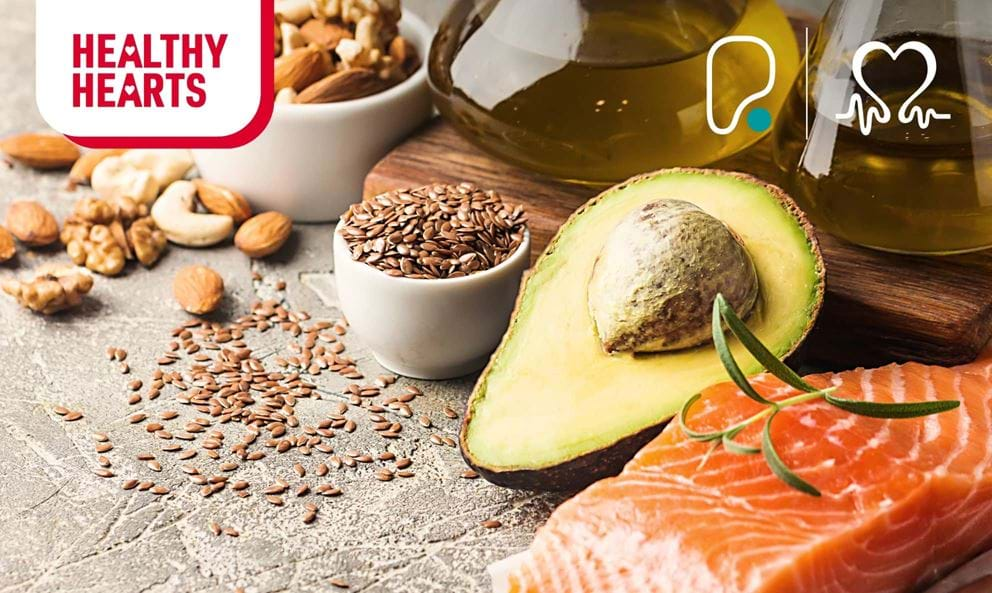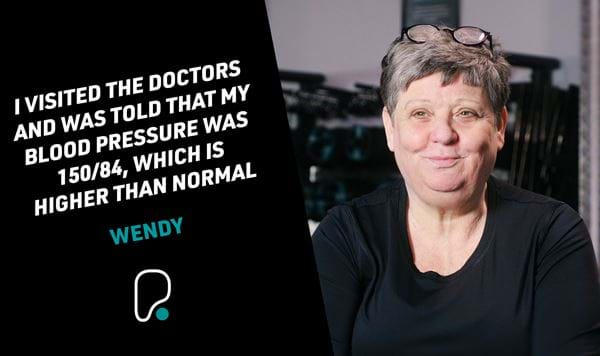Dietary Fats and Heart Health Explained

Whether you’re just looking to improve your heart health, or you have risk factors such as high cholesterol or high blood pressure – learning more about fat and how it can affect your heart is a great place to start.
The nutritional experts at the British Heart Foundation tell us that one of the most popular questions people have around heart health and their nutrition is how much fat is too much.
But the focus shouldn’t just be on how much fat you eat - you should also be thinking about the types of fat that you are eating too.
So, in this week’s educational blog, we’re discussing all things fats. Learn more about the different types of fat and the important role they play in looking after your heart health. Plus get top tips from the dietitians at the British Heart Foundation to make healthy choices and simple swaps with your fat intake.
Is fat bad for heart health?
Many people think that they need to restrict or have no fat at all in their diet to be healthy. This isn’t true and can be damaging to your body. Good fats in moderation have essential benefits to your health. They help you to:
- Stay warm
- Make hormones
- Feel fuller for longer
- Absorb fat-soluble vitamins such as A, D, E and K
- Renew our cells
- Control our temperatures
- Have normal reproductive health
But many of us have too much of the wrong type of fat in our diet which can be bad for heart health. Too many of the wrong fats can increase your blood cholesterol levels which increases your risk of heart and circulatory disease.
Our bodies also store excess fat in case we need it for later, so getting too much fat in your diet can lead to weight gain.
Having too much body fat, particularly around your middle section, can increase your risk of conditions like type 2 diabetes, heart disease and some cancers.. It can also give you joint pain, make you lethargic and lower your immune system function. So, it’s important to learn more about what foods should be left as occasional treats, and what kinds of fats you can eat daily.
What fats should I be eating?
There are two main types of fats that are in all our diets, known as saturated and unsaturated fats.
- Unsaturated Fats (Monounsaturated and Polyunsaturated)
These types of fats are often referred to as ‘healthier fats’ and have many health benefits, including those for your heart health.
Unsaturated fats are also often rich in Omega-3 and Omega-6 fatty acids, found in foods such as oily fish, ground flaxseed and walnuts. These types of fats are both classed as essential fatty acids (EFA), which we need to consume in our diet as our body can’t produce them naturally.
You can find unsaturated fats in foods such as:
- Nuts (like cashew, peanuts, almonds, and brazil nuts)
- Olive oil
- Oily fish
- Avocados
- Seeds (like chia seeds, sunflower seeds, and flaxseeds)
Try to choose unsaturated fats over sources of saturated fats, as they can help to improve your cholesterol levels, helping to look after your overall heart health.
- Saturated Fats
These types of fats are sometimes referred to as ‘unhealthy fats’ and you should limit foods that contain this type of fat.
You can find saturated fats in foods such as:
- Processed meats
- Takeaways and fried foods
- Biscuits, cakes, and ice cream
- Cheeses, butter, and cream
- Palm oil and coconut oil
Eating too much saturated can increase the non-HDL cholesterol within your blood, which is known as ‘bad’ cholesterol. Having high cholesterol increases your risk of heart disease so cutting back on this is recommended.
Aim to consume no more than 10% of your daily calories from saturated fats – that’s approximately 20g of saturated fat per day.
Can I avoid heart and circulatory disease by eating less saturated fat?
Where possible, replacing saturated fats with unsaturated fats will contribute to your overall heart health and keep your diet balanced. It’s also important to look at the bigger picture of your overall diet.
We spoke to BHF dietitian Victoria Taylor about the Mediterranean diet. She tells us “This diet is associated with a lower risk of heart and circulatory disease and contains a range of different foods that contribute to better health. It includes plenty of fruit and vegetables, pulses, fish, olive oil, nuts, and seeds. It contains less butter, fatty meat, full-fat dairy products and high-fat snacks, so it’s naturally higher in unsaturated fats and lower in saturated fats.”
An occasional takeaway or slice of cake is fine, as we don’t need to completely cut out the foods we enjoy to be healthy. But it’s important to know what will benefit your long-term heart health. So, if you’re reaching for processed foods and saturated fats every day, it’s worth making some tweaks to your diet which will keep your heart healthy in the future.
Tips for eating less saturated fats
All fats are a combination of saturated and unsaturated fat so it’s impossible to cut out all saturated fat from your diet. But taking steps to have less of it and making conscious choices will keep our hearts healthy in the long term.
We encourage you to try and make healthy swaps which will lower your risk of high cholesterol as well as being good for your overall heart health, whilst feeding your body the nutrients it needs to stay strong.
Why not try a few of these to get started:
- Try to eat lean meats instead of processed or fattier cuts
- Swap a packet of crisps for a handful of nuts
- Sip frozen fruit smoothies for some chilled sweetness when you feel like ice cream
- Choose low-fat dairy options like crème fraiche or low-fat Greek yoghurt instead of double cream
- Swap your oils for olive oil
- Try natural low-fat yoghurt with fruit sprinkled on top when craving desserts
- Recreate your favourite takeaways at home
Should I always go for lower fat options?
Although low fat options seem like a healthier choice, labels can be misleading. ‘Light’ or ‘reduced fat’ means the food must be at least 30% lower in fat than the original. But low-fat foods often have sugar or lots of salt added in to make them taste better.
Always read the label to make your decision. Sometimes it’s more satisfying to have a certain food twice a week than to have the lower fat option every day.
Want to learn more?
Interested in trying some heart-healthy recipes? Check out our Healthy Hearts Programme for weekly healthy recipes, packed full of goodness (and flavour) but low in saturated fat and salt.
Want to know more about nutrition and heart health? Visit the British Heart Foundation’s award-winning Heart Matters magazine online nutrition hub.


